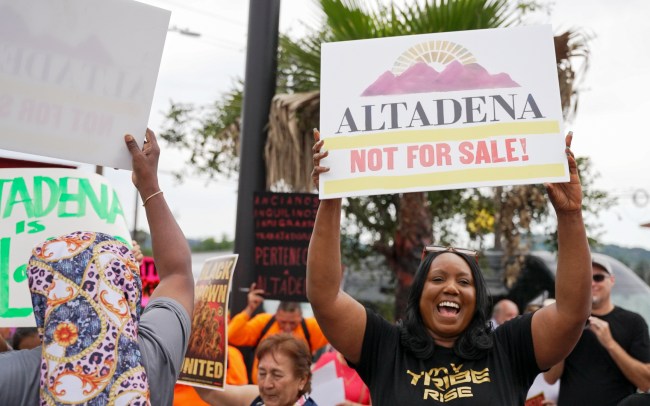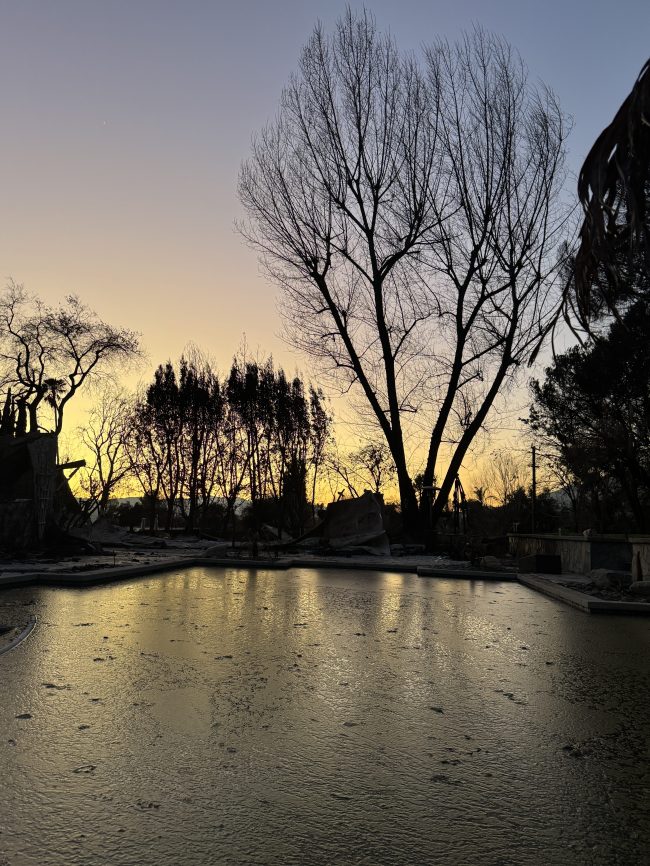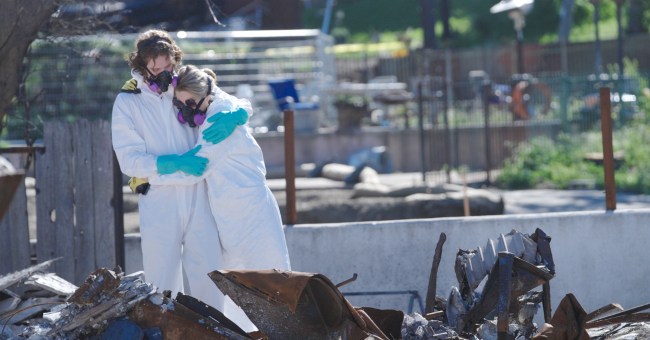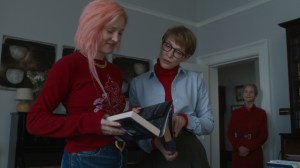Ondi Timoner doesn’t sit around. She was prepping a documentary feature about the Nazis in Budapest when she found out her house of 14 years had burned down in the Altadena fire. And she kept on shooting. Now more than ever she realizes that home is her work. And sure enough, when she got back to Altadena and started to deal with the myriad of things (insurance, rebuilding), she kept recording her life. It’s who she is.
She wasn’t really finished with her latest short, “All the Walls Came Down,” when we talked on Zoom from her new digs in Joshua Tree. “Even though everything I’ve created, most of my archives are gone, I can still go and make something else now that’s new,” she said. “I do take refuge in the stories I’m telling, they helped me to order the chaos, and to find the silver lining. When I’m dealing with trauma, I record it, so I could, one day, possibly make something, make lemonade out of lemons. If I don’t record and have the matter with which to practice that form of alchemy, there’s not even an option. So I’m lucky enough that I have friends who have cameras, and I had with me a couple of cameras. I lost so many cameras, like lenses and tripods and all my lighting, but I had a couple cameras in my suitcase because I was in Europe.”
Timoner shocked herself with the speed of the edit. “I truly have never edited anything so fast,” she said. “It just came flying out. It shocked my whole team.” She submitted the short late, way past the deadline, but festival director Julie Huntsinger accepted it anyway. Now Timoner is rushing to finish it in time. “All the Walls Came Down” premieres Sunday.

The toughest moment for Timoner was landing in LA and not being able to go home. “I was in a real state,” she said. “And it was tough, but I knew to film because of ‘Last Flight Home.’” That film was an intimate (and healing) family chronicle of her father’s death by euthanasia.
Timoner started filming her razed home as well as her brother’s, and reached out to her neighbors. “Here we are all in this pile,” she said, “and I’m processing, trying to make sense of the whole thing. What is all of this going to come to? And what is this about? What can I learn about this as somebody right in the middle of it, going through it myself, that I can share with other people?”
As we talk, Timoner realizes that she wants to add the last picture she ever took in the house. She’s still fussing with the edit. “Many of us are going to have to deal with this [climate crisis] on some level,” she said, “whether it’s floods or fire or earthquake. The climate is not happy.”
As Timoner talked to her neighbors she recognized that she was coming from a relative place of privilege. “We’re all under-insured,” she said. “They still haven’t paid me to my property limits, even though I lost literally all the property that I insured. They also owe us money for rent. They haven’t paid any of it. The reality is, I’m a working director who has made films that people care about, at least to an extent, that I can survive right now.”
Altadena resident and activist Heavenly Hughes of My Tribe Rise told Timoner: “You moved into a Black community, we’re not a priority.” Timoner was shocked. “I felt such white blindness,”she said. “How naive I am to think that because I pay my taxes, I expect a fire truck, emergency services, at least, to evacuate my neighbors and my community, but there was nothing. And now it’s been proven.”
Timoner’s West Altadena neighborhood didn’t get fire trucks. Her mother’s closer to downtown did.
So Timoner started filming her neighbors. “Everyone has different circumstances, even if we live in the same spot, even if we’re walking our dogs down the same street and loving the same peacocks and loving the same town,” she said. “We shared a deep love for Altadena. When the title of the film came to me, is that the walls came down and these relationships have blossomed, just like the grass that’s springing out of the ground, despite all of this, you’ll see fresh growth. The garden we’re creating, it’s a community determined to maintain its integrity in the face of a massive move toward gentrification. This land is very valuable.”

“All the Walls Came Down” shows that all insurance is not created equal. One family in the film was about to lose everything, but Heavenly Hughes and others are fighting back. “There are people living in their cars, who were not homeless,” said Timoner. “There are people who have lived there for decades and decades, who have lost all of their generational wealth, and they need help right now. It’s an urgent situation, and it’s something that we read in the news and such, but the power of film is to take audiences beneath the headlines, to actually meet the people who live there, who are going through whatever they’re going through.”
Timoner is looking for a distributor, and will give any profits toward Altadena’s recovery. The film will open at the Glendale Laemmle on September 12 for a qualifying run, complete with a birthday celebration for Hughes.



